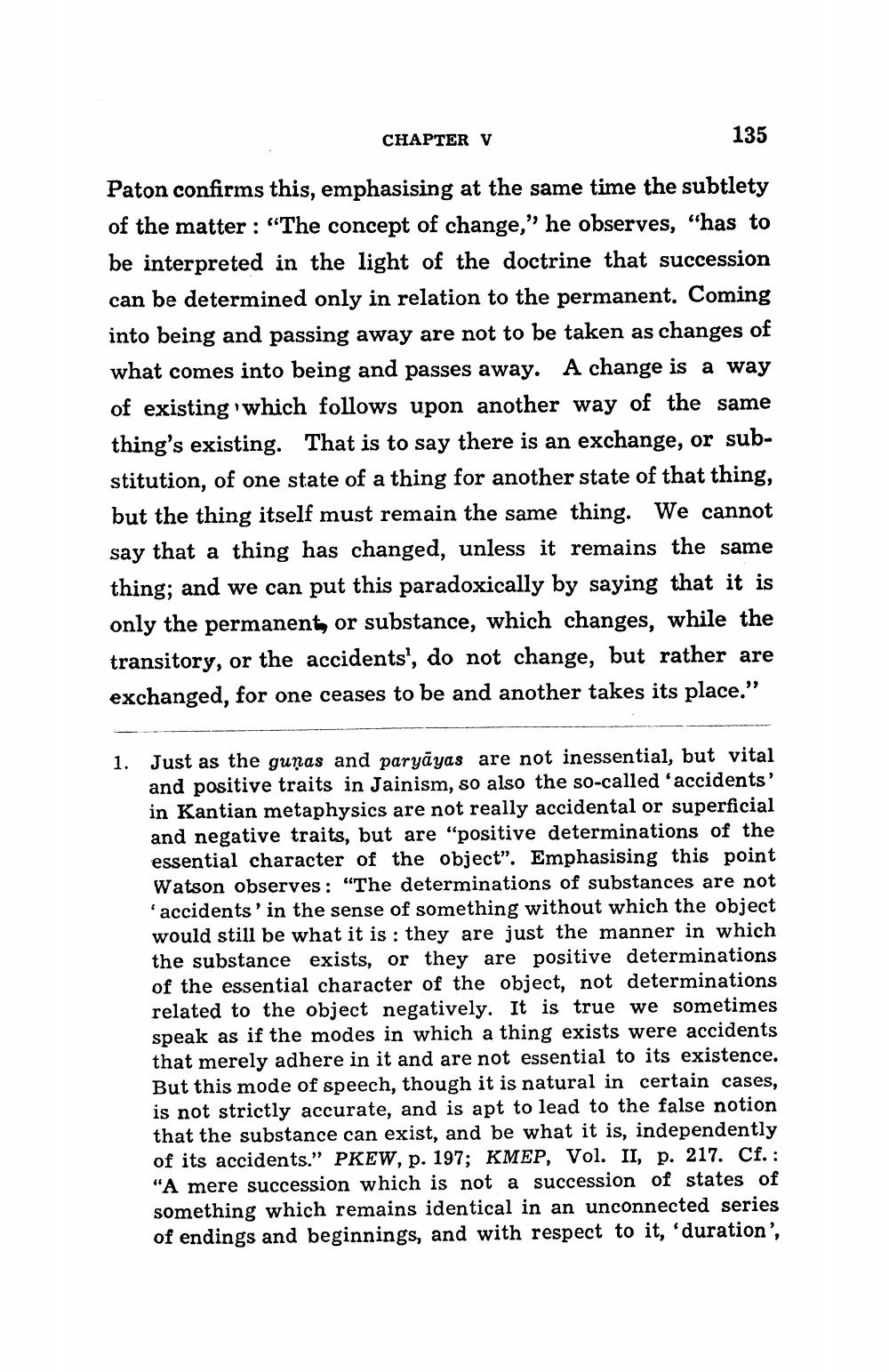________________
CHAPTER V
135 Paton confirms this, emphasising at the same time the subtlety of the matter : "The concept of change,” he observes, "has to be interpreted in the light of the doctrine that succession can be determined only in relation to the permanent. Coming into being and passing away are not to be taken as changes of what comes into being and passes away. A change is a way of existing which follows upon another way of the same thing's existing. That is to say there is an exchange, or substitution, of one state of a thing for another state of that thing, but the thing itself must remain the same thing. We cannot say that a thing has changed, unless it remains the same thing; and we can put this paradoxically by saying that it is only the permanent, or substance, which changes, while the transitory, or the accidents', do not change, but rather are exchanged, for one ceases to be and another takes its place."
1. Just as the gunas and paryāyas are not inessential, but vital
and positive traits in Jainism, so also the so-called 'accidents' in Kantian metaphysics are not really accidental or superficial and negative traits, but are "positive determinations of the essential character of the object". Emphasising this point Watson observes: "The determinations of substances are not
accidents' in the sense of something without which the object would still be what it is : they are just the manner in which the substance exists, or they are positive determinations of the essential character of the object, not determinations related to the object negatively. It is true we sometimes speak as if the modes in which a thing exists were accidents that merely adhere in it and are not essential to its existence. But this mode of speech, though it is natural in certain cases, is not strictly accurate, and is apt to lead to the false notion that the substance can exist, and be what it is, independently of its accidents.” PKEW, p. 197; KMEP, Vol. II, p. 217. Cf.: “A mere succession which is not a succession of states of something which remains identical in an unconnected series of endings and beginnings, and with respect to it, duration',




